Are you facing a contractor invoice dispute and unsure of how to address it? It's a common issue that many property owners encounter, often leading to frustration and confusion. Resolving these disputes effectively requires clear communication and understanding of your rights and responsibilities. Join us as we explore essential steps and strategies to help you tackle contractor invoice disputes with confidenceâread on for valuable insights!
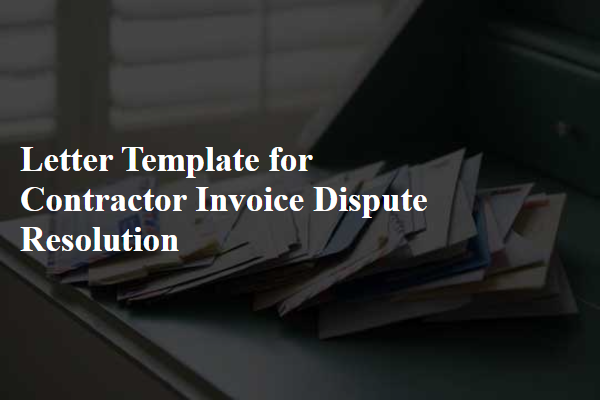
Clarity on Disputed Invoice Details
A contractor invoice dispute often involves specific issues requiring clarity on disputed invoice details, such as line-item discrepancies, billing rates, or project milestones. For instance, a contractor may invoice for $15,000 for additional work not included in the original agreement, while the contract specifies a fixed compensation of $12,000 for the entire project duration, completed by June 30, 2023. Key details such as the nature of the disputed work, dates of service (e.g., November 1-15, 2023), and supporting documentation, like timecards or change orders, provide essential context. Clear communication regarding these aspects can facilitate productive discussions and promote resolution.
Specifics of the Dispute
In construction projects, a contractor invoice dispute often arises from discrepancies between billed amounts and agreed-upon contract terms. Common reasons include unapproved change orders, billing for work not performed, or miscalculations in labor and material costs. For instance, if a contractor claims $10,000 for additional framing work but the original contract outlined a fixed price of $8,000 for the entire framing package, this difference can lead to disputes. The resolution process often involves formal communication initiated by the project manager or client representative, outlining specific issues such as the lack of written approval for the additional work and a request for detailed documentation supporting the billed amount. Effective documentation, including contracts, change orders, and correspondence, forms the basis for negotiations or mediations aimed at resolving the financial disagreement amicably.
Contractual Agreements Reference
Contractual agreements in the construction industry often contain specific clauses outlining the process for dispute resolution between contractors and clients. These agreements usually reference key elements such as the contract date, project scope, and payment terms. Dispute resolution mechanisms can include mediation, arbitration, or litigation, often delineated in terms of timeline and location. For instance, according to the American Arbitration Association's rules, mediation may be sought within 30 days of the dispute's identification, often taking place in specified locales like the city where the contract was signed. The contract may also list governing laws, often pointing to state regulations or local statutes that pertain to construction agreements. Accurate documentation of communications, invoices, and work completed is essential for resolution. Understanding these contractual references assists both parties in navigating disputes effectively, ensuring that all parties adhere to agreed-upon protocols and timelines.
Proposed Resolution or Compromise
When disputes arise in contractor invoicing, numerous factors contribute to effective resolution. A thorough understanding of contract terms (detailed in documents such as the Service Agreement) is crucial, including scope of work (specific tasks outlined in the agreement) and payment terms (due dates and amounts). Direct communication with contractors can clarify discrepancies, whether regarding extra charges or incomplete work. For instance, if a contractor submitted an invoice for $5,000, but the agreed amount was $4,500, discrepancies must be addressed immediately. Alternative dispute resolution methods, such as mediation or arbitration, can also provide a neutral ground for resolution, often leading to quicker settlements without extensive litigation. Documentation of conversations, contracts, and invoices plays a crucial role in supporting claims and reaching a fair compromise. Addressing these factors can lead to a successful resolution, fostering ongoing professional relationships.
Deadlines and Next Steps
Contractor invoice disputes often arise due to various factors, including misunderstandings about project scope or discrepancies in billed amounts. Clients should carefully review the itemized invoice to identify any inconsistencies. Timely communication is crucial; typically, parties may establish a resolution deadline of 14 days from the invoice receipt. Following this timeframe, if no agreement is achieved, escalation to a formal dispute resolution process, such as mediation or arbitration, may be necessary. Documenting all communications and maintaining records of agreements is essential throughout this process. Establishing clear next steps, such as confirmation of the dispute's nature in writing and proposing alternative terms, can facilitate a smoother resolution.

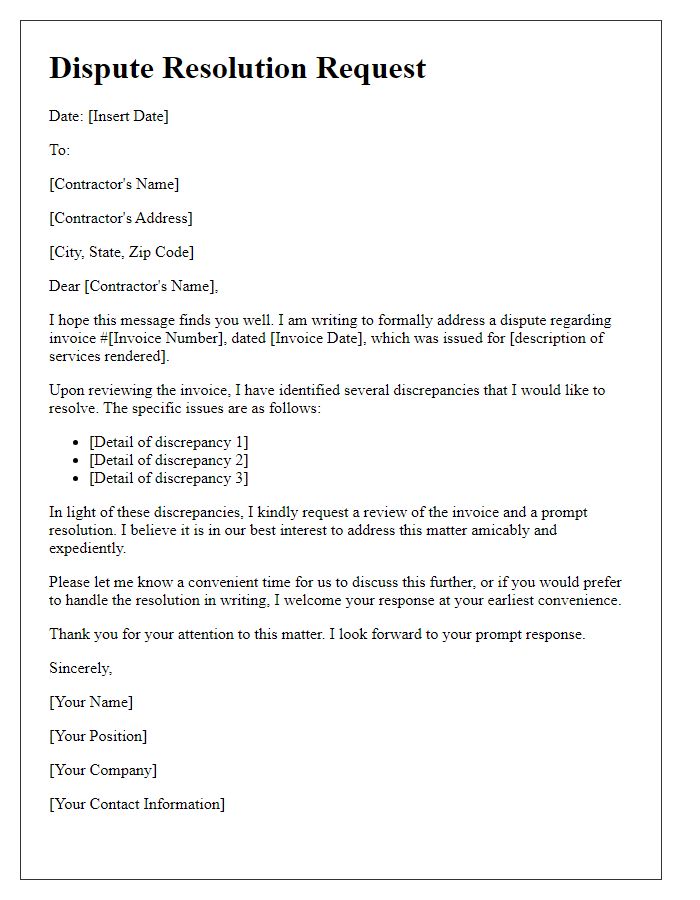
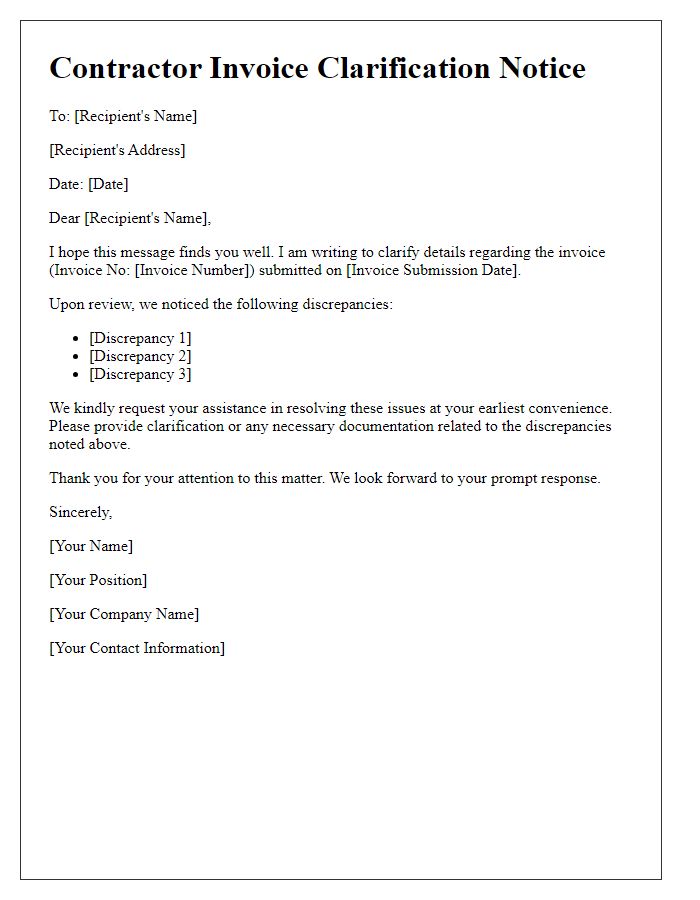
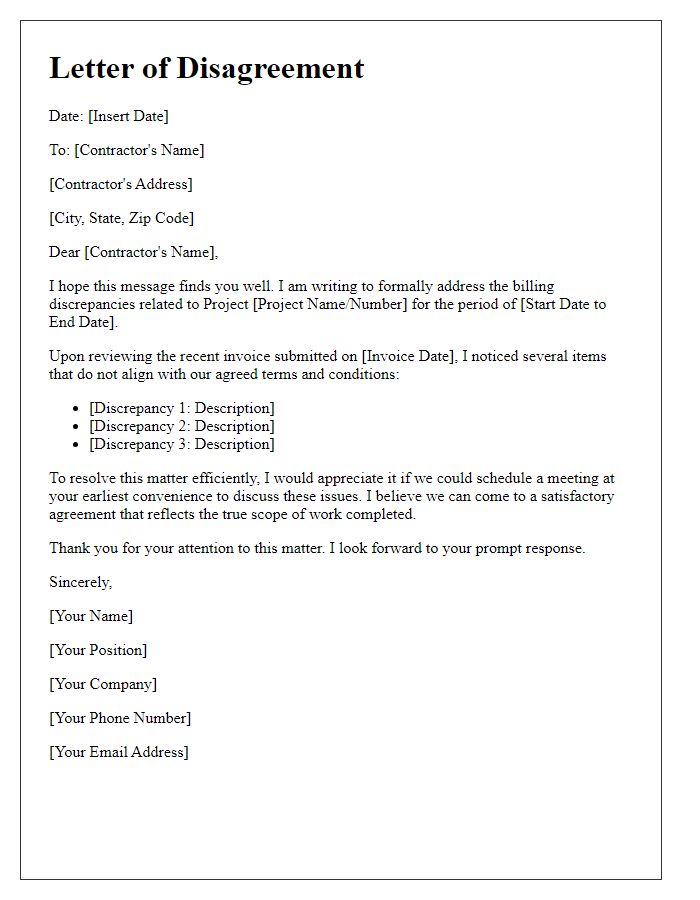
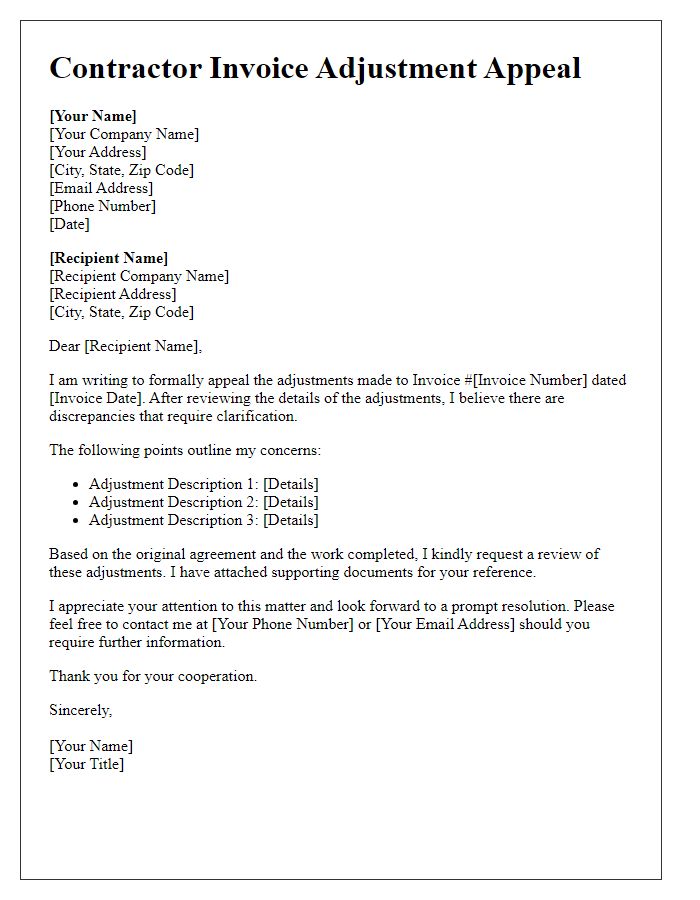
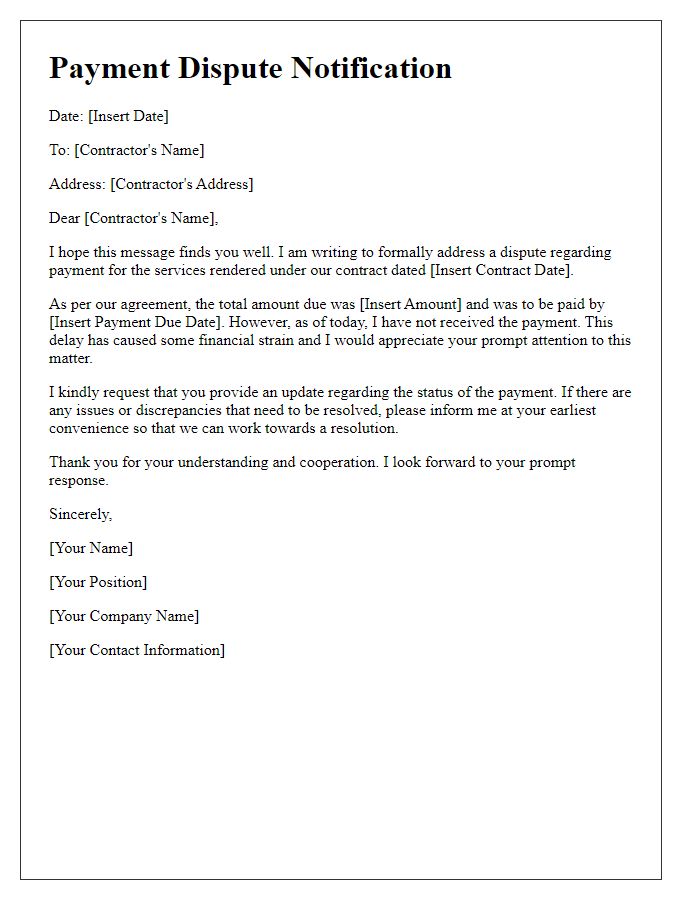
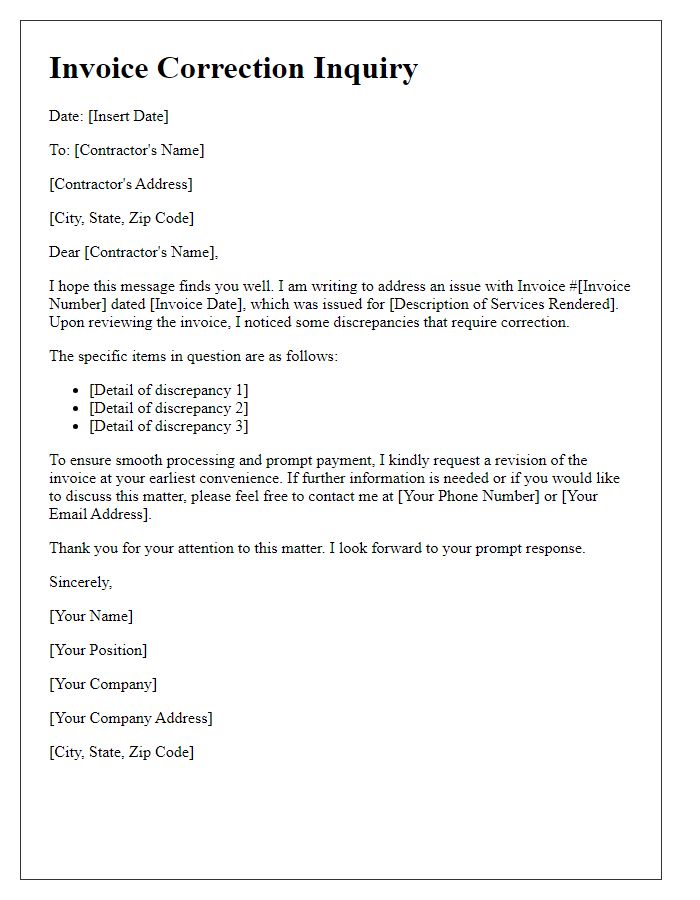
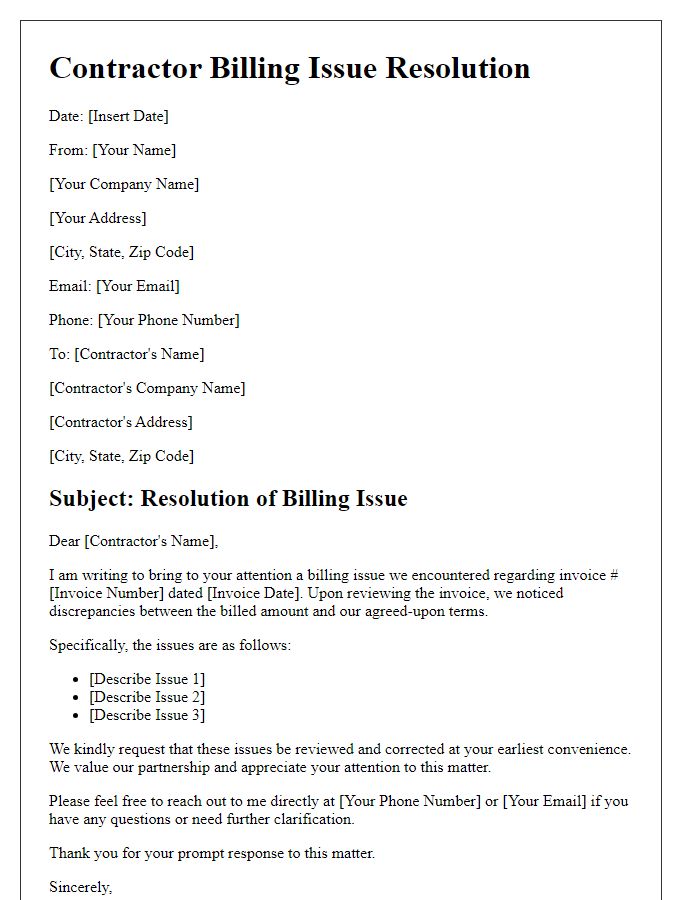
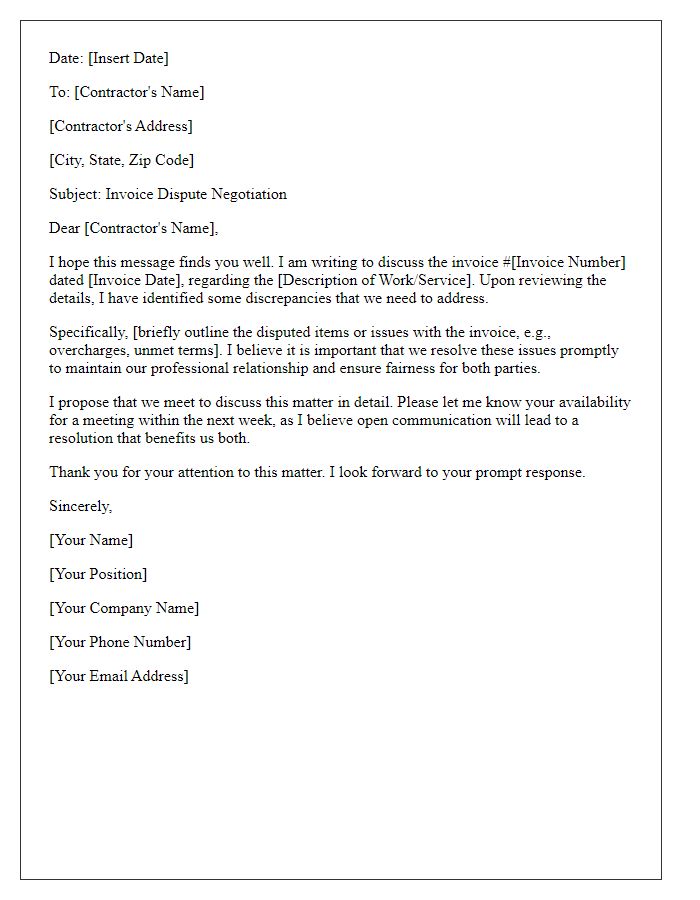
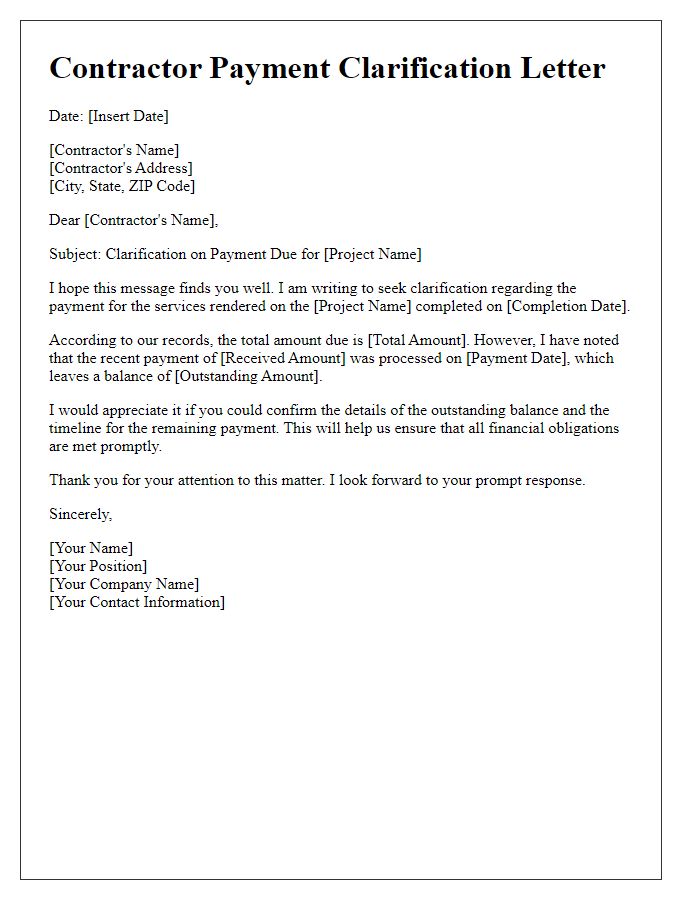
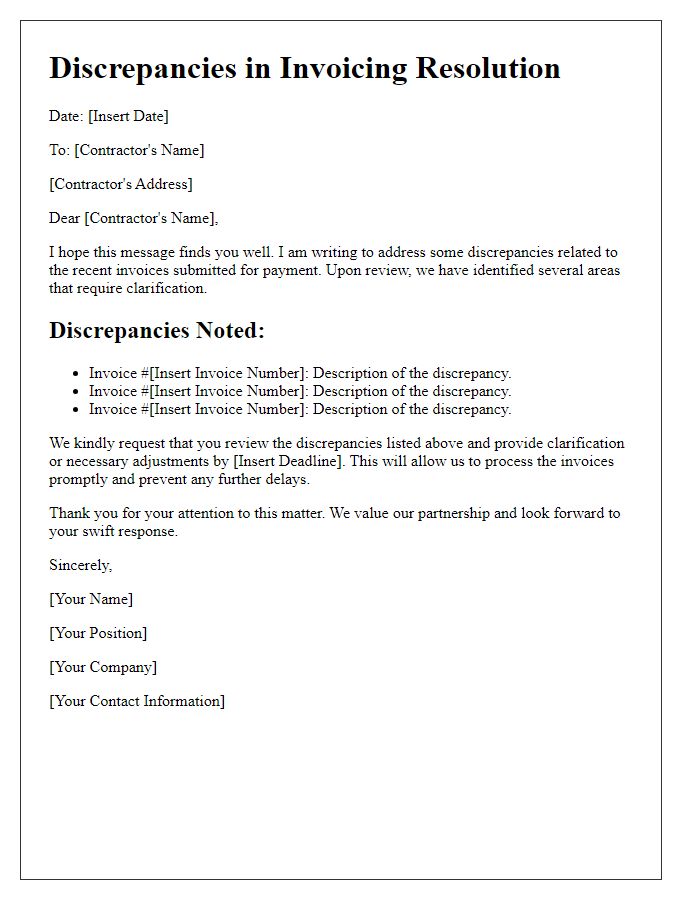

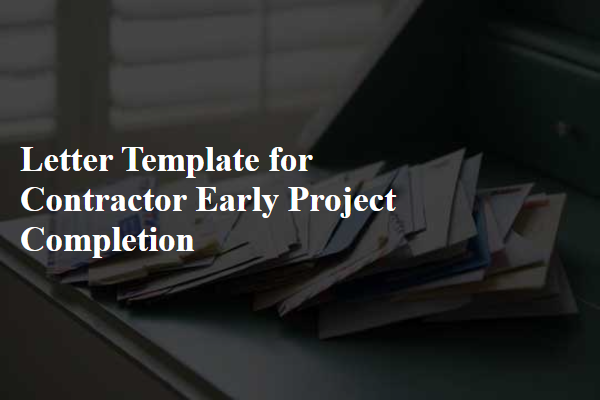
Comments